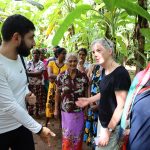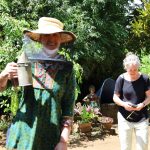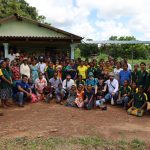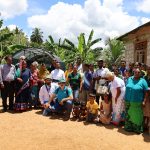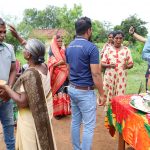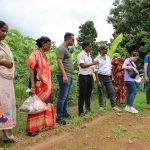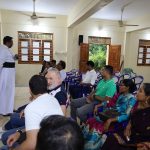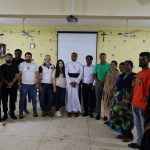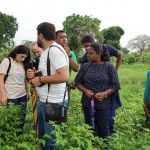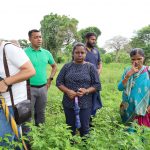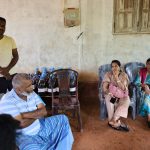From May 14th to 19th, 2024, an Agro ecological Farmers’ Exchange Visit was arranged to the farmlands in Anuradhapura and Mannar, Sri Lanka. There were 12 farmers representing Caritas Bangladesh and UBINIG, Bangladesh and Mada, Lebanon. This visit was Co-hosted by Caritas Sri Lanka SEDEC and MONLAR, and funded by CAFOD, UK.
The main objective of this exchange visit was to witness firsthand the agroecological practices that develop well in Sri Lanka. Participants observed apiculture, biodiversity conservation, soil health regeneration, and the promotion of ecological balance, all critical elements of sustainable agriculture. Exchange Visit brought together a diverse group of stakeholders, beneficiaries, and agricultural experts based on their vast experiences on ecological sustainability and agricultural productivity.
On the first day, the participants travelled to Anuradhapura, setting the stage for an enriching exposure visit. The second day was packed with practical learning, starting with beekeeping techniques using scientific boxes to attract bees and ensure natural pollination. The team delved into methods of separating honey and splitting honeybee colonies, gaining valuable insights into the honey market dynamics. Organic fertilizer and pesticide production were also covered, with Miss Iresha Sadamali demonstrating five types of natural pesticides and three types of liquid fertilizers. A visit to a farmer in Sumudugama shows the innovative use of a natural air water pump for irrigation.
The third day took the participants to a well-managed agroecological farm in Halmillakulama, Anuradhapura. Here, they learned about vermicomposting and the preparation of liquid fertilizers from natural resources. Facilitators such as Rev. Fr. Alec Roy and Mr Chaminda Kumara guided the sessions, providing in-depth knowledge on maintaining farmlands without chemical inputs.
On the final day, the team visited the Department of Agriculture in Mannar. An agriculture instructor explained the functioning of an agroecology farm using a model farm as a practical example. The group then proceeded to Madukarai Village to observe integrated farming practices that combine crop cultivation with animal husbandry. The expatriates witnessed how local farmers utilize natural resources to maintain productive and sustainable farmlands.
Throughout the visit, participants expressed their appreciation for the deep insights gained into the potential of agroecology to transform agriculture. They highlighted the importance of sustainable farming practices, especially in a tropical country like Sri Lanka, which is vulnerable to climate change. The knowledge and connections formed during this visit are expected to inspire and influence agricultural practices in Bangladesh, Lebanon, and beyond, contributing to a more sustainable and equitable global food system.
We thank CAFOD Partners, Monlar, Agricultural Instructors, Caritas Anurdhapura and Caritas Mannar who took different tasks in making this exchange visit a success. Finally, this enriching experience underscored the importance of sustainable agriculture in building resilience against climate change and promoting biodiversity.







